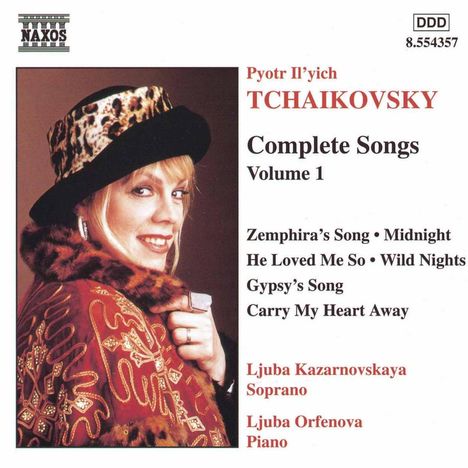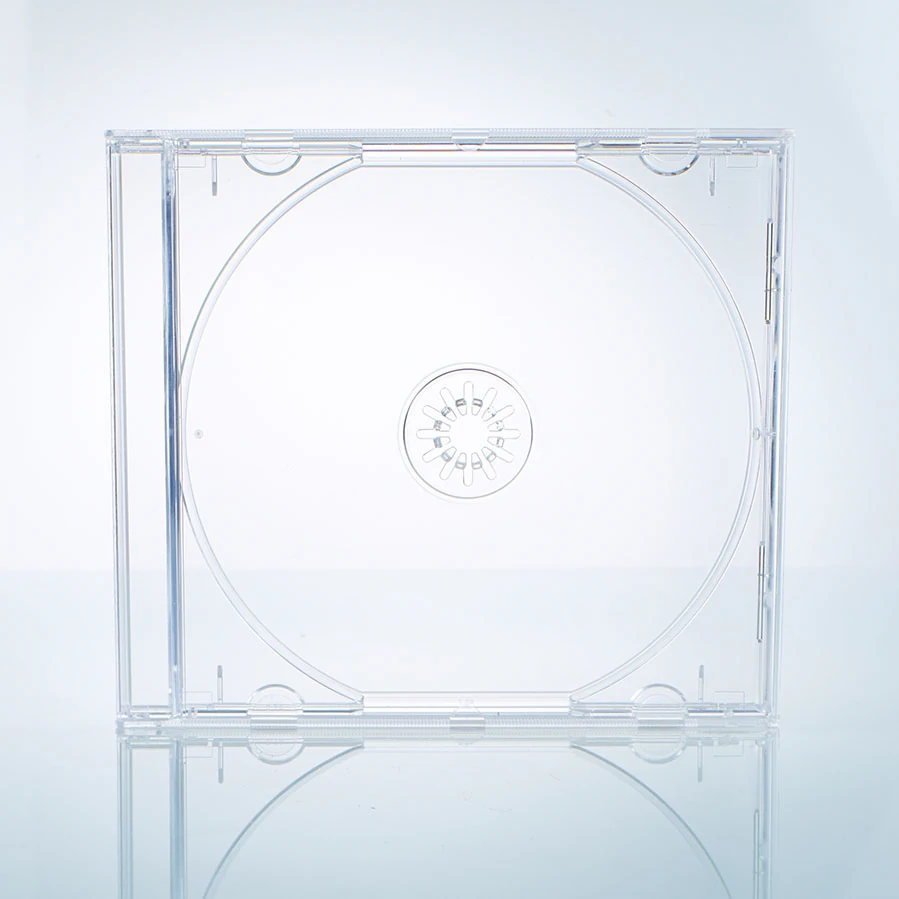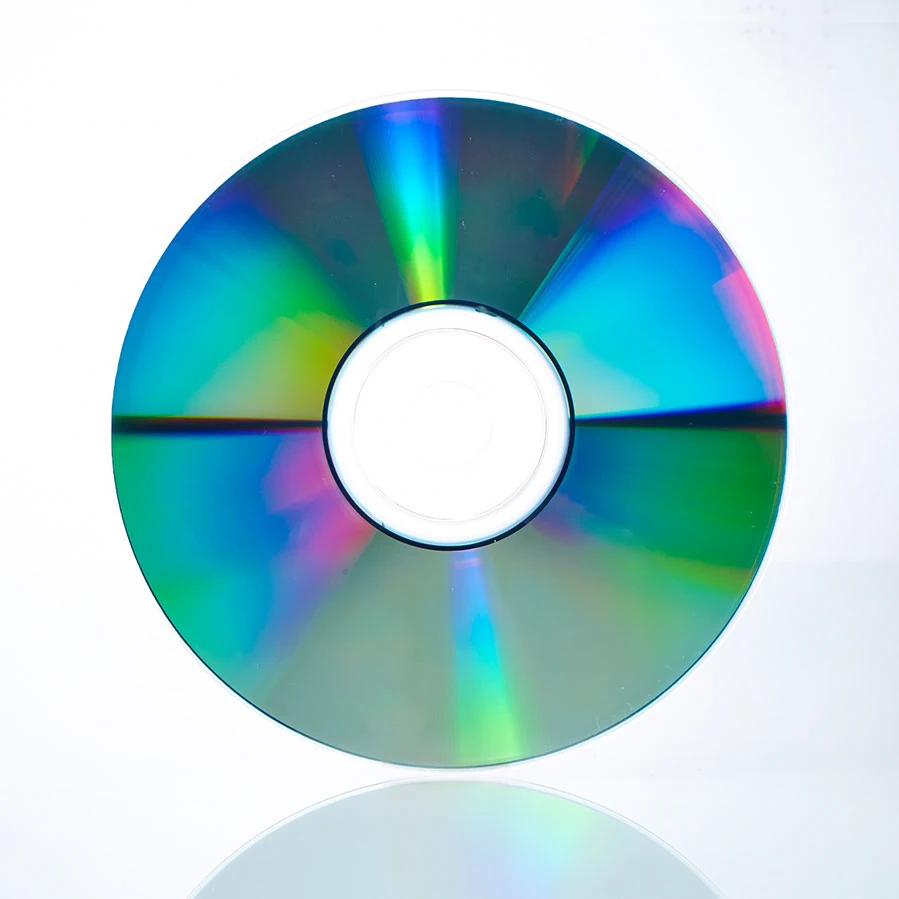Peter Iljitsch Tschaikowsky: Sämtliche Lieder Vol.1 auf CD
Sämtliche Lieder Vol.1
Herkömmliche CD, die mit allen CD-Playern und Computerlaufwerken, aber auch mit den meisten SACD- oder Multiplayern abspielbar ist.
Lassen Sie sich über unseren eCourier benachrichtigen, falls das Produkt bestellt werden kann.
Zemphira's Song; Midnight; To forget so soon; Lullaby; Wait; Carry my heart away; As when upon hot ashes; Do not leave me; He loved me so; If I had known; A soul floated gently up to Heaven; Darkness has fallen over the Earth; Whether in the realm of day; Was I not a blade of grass; Wild nights; Gypsy's song; Gentle stars shone for us
- Künstler:
- Ljuba Kazarnovskaya, Ljuba Orfenova
- Label:
- Naxos
- Aufnahmejahr ca.:
- 1997
- UPC/EAN:
- 0636943435724
- Erscheinungstermin:
- 17.5.1999
Ähnliche Artikel
Russlands Beitrag zum europäischen Lied in der zweiten Hälfte des neunzehnten Jahrhunderts und in den ersten Jahren des zwanzigsten Jahrhunderts ist von beträchtlicher Bedeutung und Interesse. Mit wenig oder keiner eigenen Tradition, abgesehen von einer sehr ausgeprägten Volksliedliteratur, wandten sich russische Komponisten zwangsläufig anderen kontinentalen Vorbildern zu - insbesondere Deutschland und Italien -, entwickelten aber schnell eine nationale Schule, von der man sagen kann, dass sie einige der besten Kompositionen ihres Landes hervorgebracht hat. Der größte russische Liedkomponist des 19. Jahrhunderts ist zweifellos Mussorgskij, dicht gefolgt von Balakirew und Borodin, aber knapp dahinter folgt Tschaikowsky, dessen Qualitäten als Liederdichter verständlicherweise von seiner Statur als Opernkomponist überschattet werden (ebenso wie seine zahlreichen Stücke für Klavier solo von seinen Konzerten).
Zwischen 1869 und 1893 komponierte Tschaikowsky etwas mehr als hundert Lieder, von denen die meisten in Sechsersätzen und Vertonungen von Wörtern zweitklassiger russischer Dichter veröffentlicht wurden.
Product Information
Russia's contribution to European song during the second half of the nineteenth century and the early years of the twentieth is of considerable importance and interest With little or no tradition of their own, apart from a very distinctive folk-song literature, Russian composers inevitably turned to other Continental models – to Germany in particular, and to Italy – but quickly evolved a national school that may be said to have produced some of their country's finest music. The greatest Russian song composer of the nineteenth century is, without doubt, Mussorgsky, closely followed by Balakirev and Borodin, but close behind them comes Tchaikovsky, whose qualities as a lyricist are understandably overshadowed by his stature as an opera composer (just as his many pieces for solo piano are by his concertos).
Between 1869 and 1893 Tchaikovsky composed just over a hundred songs, most of them published in sets of six and settings of words by second-rate Russian poets.
Rezensionen
"Sie hat eine außergewöhnliche Stimme, reich und farbenfroh, und die Liebe zum Detail, sowohl musikalisch als auch verbal, um dem Kunstliedrepertoire voll gerecht zu werden." (Hugh Canning)Disk 1 von 1 (CD)
-
1 Zemphira's Song
-
2 The Midnight Review: Midnight
-
3 To Forget So Soon
-
4 6 Romances, Op. 16 (text by A.N. Maykov): Lullaby, Op. 16, No. 1
-
5 6 Romances, Op. 16 (text by N. Grekov): Wait! Op. 16, No. 2
-
6 Take my Heart Away: Carry My Heart Away
-
7 6 Romances, Op. 25 (text by F.I. Tyutchev): As When Upon Hot Ashes, Op. 25, No. 2
-
8 6 Romances, Op. 27 (text by Fet): Do Not Leave Me, Op. 27, No. 3
-
9 6 Romances, Op. 28 (text by N. Grekov): He Loved Me So, Op. 28, No. 1
-
10 7 Romances, Op. 47 (text by A.K. Tolstoy): If I Had Known, Op. 47, No. 1
-
11 7 Romances, Op. 47 (text by A.K. Tolstoy): A Soul Floated Gently Up to Heaven, Op. 47, No. 2
-
12 7 Romances, Op. 47 (text by N.V. Berg): Darkness has Fallen Over the Earth, Op. 47, No. 6
-
13 7 Romances, Op. 47 (text by A.N. Apukhtin): Whether in the Realm of Day, Op. 47, No. 6
-
14 7 Romances, Op. 47 (text by I. Surikov): Was I Not a Blade of Grass? Op. 47, No. 7
-
15 12 Romances, Op. 60: Wild Nights, Op. 60, No. 6
-
16 12 Romances, Op. 60 (text by Y.P. Polonsky): Gypsy's Song, Op. 60, No. 7
-
17 12 Romances, Op. 60 (text by A.N. Pleshcheyev): Gentle Stars Shone for Us, Op. 60, No. 12











